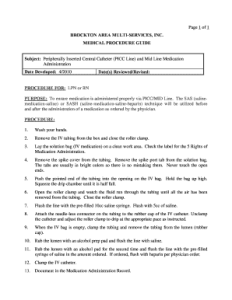
How to Select the Right Doctor for Your Medical Needs
Introduction
Selecting the right doctor for your medical needs is a crucial decision that can have a significant impact on your health and well-being. With so many doctors available, it can be overwhelming to know where to start and what factors to consider. This article will provide you with valuable tips and guidance to help you make an informed decision when choosing a doctor.
Evaluate Your Medical Needs
Before beginning the search for a doctor, take some time to evaluate your medical needs. Determine whether you require a general practitioner for regular check-ups and preventive care, or if you have a specific medical condition that requires specialized care from a specialist. Understanding your needs will streamline the selection process.
Check Credentials and Experience
It is crucial to check the credentials and experience of any doctor you are considering. Research their educational background, training, and certifications. Check if they are board-certified and affiliated with reputable medical organizations. Additionally, consider the doctor’s years of experience and their expertise in treating your specific condition.
Consider Location and Accessibility
Location and accessibility are essential factors when selecting a doctor. Consider how far you are willing to travel for appointments and whether the doctor’s office is conveniently located near your home or workplace. Also, check their office hours to ensure they align with your schedule.
Assess Communication and Bedside Manner
Effective communication is vital in establishing a trusting and collaborative doctor-patient relationship. Pay attention to how the doctor communicates with you during your initial consultation. Are they attentive, understanding, and able to explain medical information clearly? A doctor with a good bedside manner will make you feel comfortable and listened to.
Read Reviews and Seek Recommendations
Reading reviews from other patients can provide insight into a doctor’s reputation and patient satisfaction. Look for reviews on reputable websites and take note of recurring positive or negative comments. Additionally, seek recommendations from trusted friends, family members, or your current healthcare provider.
Insurance Coverage
When choosing a doctor, it is important to consider your insurance coverage. Contact your insurance provider to obtain a list of in-network doctors. This will help you narrow down your options and ensure you receive the maximum insurance benefits available to you.
Trust Your Instincts
Ultimately, trust your instincts when making a decision. Consider how comfortable you feel with the doctor and whether you have confidence in their abilities. A good doctor-patient relationship is built on trust, respect, and open communication.
Conclusion
Selecting the right doctor for your medical needs requires careful consideration and research. By evaluating your medical needs, checking credentials and experience, considering location and accessibility, assessing communication and bedside manner, reading reviews, and trusting your instincts, you can make an informed decision that will promote your overall health and well-being.

